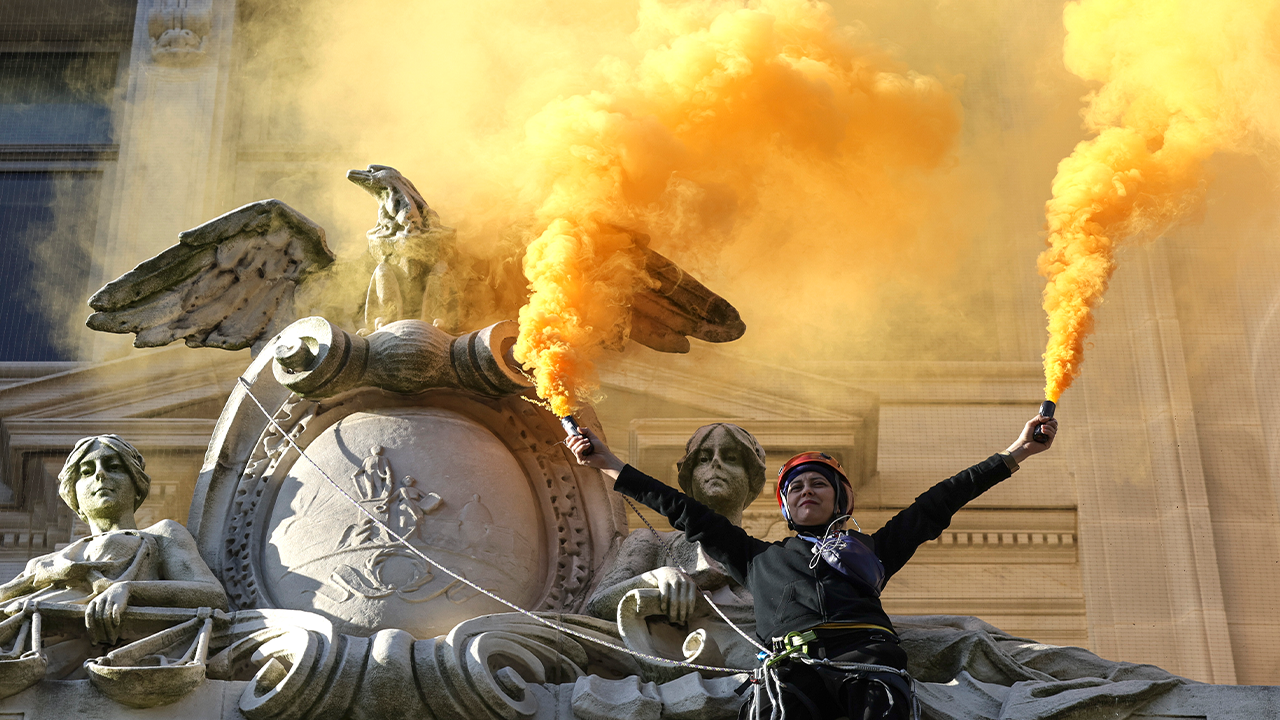An energy advocacy group, the American Energy Institute, has called on President Donald Trump to investigate what it describes as a “climate lawfare campaign” targeting U.S. energy producers, particularly in the oil and gas sector. The group claims this campaign, allegedly backed by deep-pocketed activist foundations like those linked to the Rockefeller family, uses coordinated lawsuits and state legislation to undermine American energy dominance and drive up costs for consumers.
Details of the Campaign
- Executive Order Context: On April 11, 2025, Trump signed the “Protecting American Energy from State Overreach” executive order, which criticizes state-led climate litigation and “superfund” bills as “extortion” aimed at bankrupting energy companies. These bills, passed in states like Vermont and New York, seek to impose retroactive fines on oil and gas firms for alleged contributions to greenhouse gas emissions, funding state climate mitigation projects. The order directs Attorney General Pam Bondi to identify and challenge state laws or civil actions deemed illegal for infringing on federal authority or energy production.
- American Energy Institute’s Push: The institute launched ClimateDebateHistory.com to combat what it calls “radical climate groups” behind lawsuits against companies like ExxonMobil and Chevron. It argues these lawsuits misrepresent the long-standing public and scientific awareness of climate change, citing historical media and cultural references (e.g., a 1991 Cheers episode mentioning global warming) to claim the oil industry didn’t deceive the public. The group, tied to Trump ally Leonard Leo and funded partly by the 85 Fund, sees these lawsuits as the “biggest risk” to Trump’s fossil fuel agenda.
- Legal Challenges: Lawsuits against superfund laws in Vermont and New York are underway, led by the U.S. Chamber of Commerce, the American Petroleum Institute, and 21 state attorneys general, who call New York’s law an “extortion” scheme. These efforts align with Trump’s order to curb state overreach.
Counterarguments from Environmental Groups
- Lawsuit Defense: Environmental organizations like the Environmental Defense Fund and Union of Concerned Scientists have filed lawsuits against the Trump administration, alleging it undermines climate science. They criticize a Department of Energy (DOE) report by a secretive Climate Working Group, led by Energy Secretary Chris Wright, which downplays the economic damage of climate change and questions the severity of warming. The groups argue this report, used to justify repealing the 2009 EPA Endangerment Finding, violates transparency laws like the Federal Advisory Committee Act.
- Scientific Consensus: Critics, including climate scientist Phil Duffy, argue the DOE report misrepresents peer-reviewed research, cherry-picks data, and ignores the consensus that human-driven emissions cause dangerous warming. They claim the report’s authors, known climate skeptics, have ties to the fossil fuel industry, undermining its credibility.
- Broader Legal Pushback: Environmental groups like Earthjustice are preparing legal challenges to Trump’s broader energy policies, including efforts to fast-track fossil fuel projects and weaken clean air regulations. They argue these moves violate laws like the Administrative Procedure Act, which requires public comment and justification for regulatory changes.
Political and Social Context
- Trump’s Energy Agenda: Trump’s administration has prioritized fossil fuel expansion, declaring an “energy emergency” and issuing executive orders to reverse Biden-era climate policies, including the Inflation Reduction Act’s clean energy incentives. Posts on X from accounts like @RodDMartin and @RapidResponse47 highlight Trump’s moves to repeal the EPA’s Endangerment Finding and boost energy production, framing them as dismantling “green tyranny.”
- Public Sentiment on X: Posts reflect polarized views, with Trump supporters praising deregulation as a win for consumers (e.g., @TrumpWarRoom citing falling energy prices in July 2025) and critics warning of environmental setbacks. These sentiments are inconclusive but show the issue’s divisiveness.
- Global Implications: Trump’s push extends internationally, with efforts to influence the International Energy Agency (IEA) to downplay clean energy transitions, drawing criticism for ignoring objective data.
Why It Matters
The American Energy Institute’s call for a probe taps into a broader battle over U.S. energy policy. Proponents argue it protects economic and national security by shielding energy producers from punitive lawsuits, potentially stabilizing fuel prices. Critics counter that it dismisses legitimate efforts to hold polluters accountable and risks long-term environmental harm. The outcome of these legal and political clashes could shape climate policy, energy costs, and the balance between state and federal authority for years to come.
Sources
Note: Information from X posts is treated as inconclusive and used only to gauge sentiment, not as factual evidence. Always verify claims through reputable sources.
